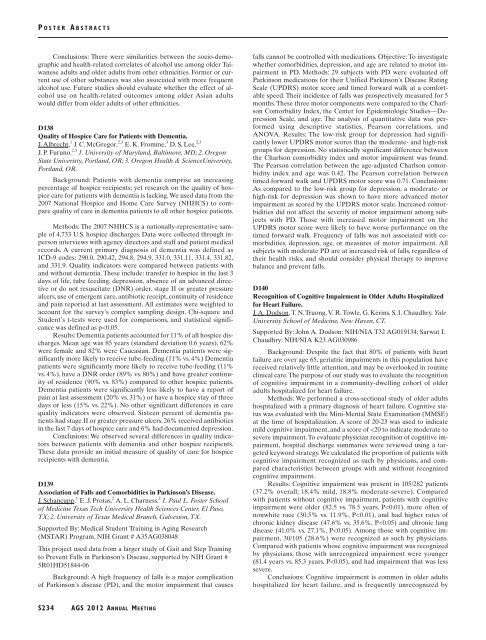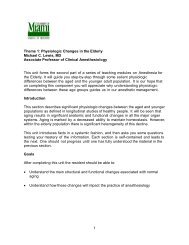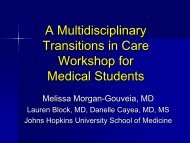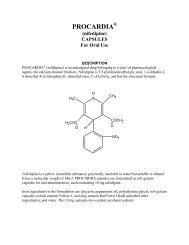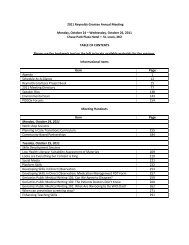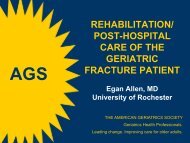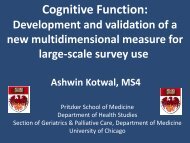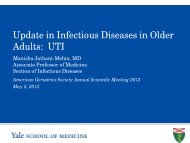Here - American Geriatrics Society
Here - American Geriatrics Society
Here - American Geriatrics Society
You also want an ePaper? Increase the reach of your titles
YUMPU automatically turns print PDFs into web optimized ePapers that Google loves.
P OSTER<br />
A BSTRACTS<br />
Conclusions: There were similarities between the socio-demographic<br />
and health-related correlates of alcohol use among older Taiwanese<br />
adults and older adults from other ethnicities. Former or current<br />
use of other substances was also associated with more frequent<br />
alcohol use. Future studies should evaluate whether the effect of alcohol<br />
use on health-related outcomes among older Asian adults<br />
would differ from older adults of other ethnicities.<br />
D138<br />
Quality of Hospice Care for Patients with Dementia.<br />
J. Albrecht, 1 J. C. McGregor, 2,3 E. K. Fromme, 3 D. S. Lee, 2,3<br />
J. P. Furuno. 2,3 1. University of Maryland, Baltimore, MD; 2. Oregon<br />
State Univeristy, Portland, OR; 3. Oregon Health & ScienceUniveristy,<br />
Portland, OR.<br />
Background: Patients with dementia comprise an increasing<br />
percentage of hospice recipients; yet research on the quality of hospice<br />
care for patients with dementia is lacking. We used data from the<br />
2007 National Hospice and Home Care Survey (NHHCS) to compare<br />
quality of care in dementia patients to all other hospice patients.<br />
Methods: The 2007 NHHCS is a nationally-representative sample<br />
of 4,733 U.S. hospice discharges. Data were collected through inperson<br />
interviews with agency directors and staff and patient medical<br />
records. A current primary diagnosis of dementia was defined as<br />
ICD-9 codes: 290.0, 290.42, 294.8, 294.9, 331.0, 331.11, 331.4, 331.82,<br />
and 331.9. Quality indicators were compared between patients with<br />
and without dementia. These include: transfer to hospice in the last 3<br />
days of life, tube feeding, depression, absence of an advanced directive<br />
or do not resuscitate (DNR) order, stage II or greater pressure<br />
ulcers, use of emergent care, antibiotic receipt, continuity of residence<br />
and pain reported at last assessment. All estimates were weighted to<br />
account for the survey’s complex sampling design. Chi-square and<br />
Student’s t-tests were used for comparisons, and statistical significance<br />
was defined as p


